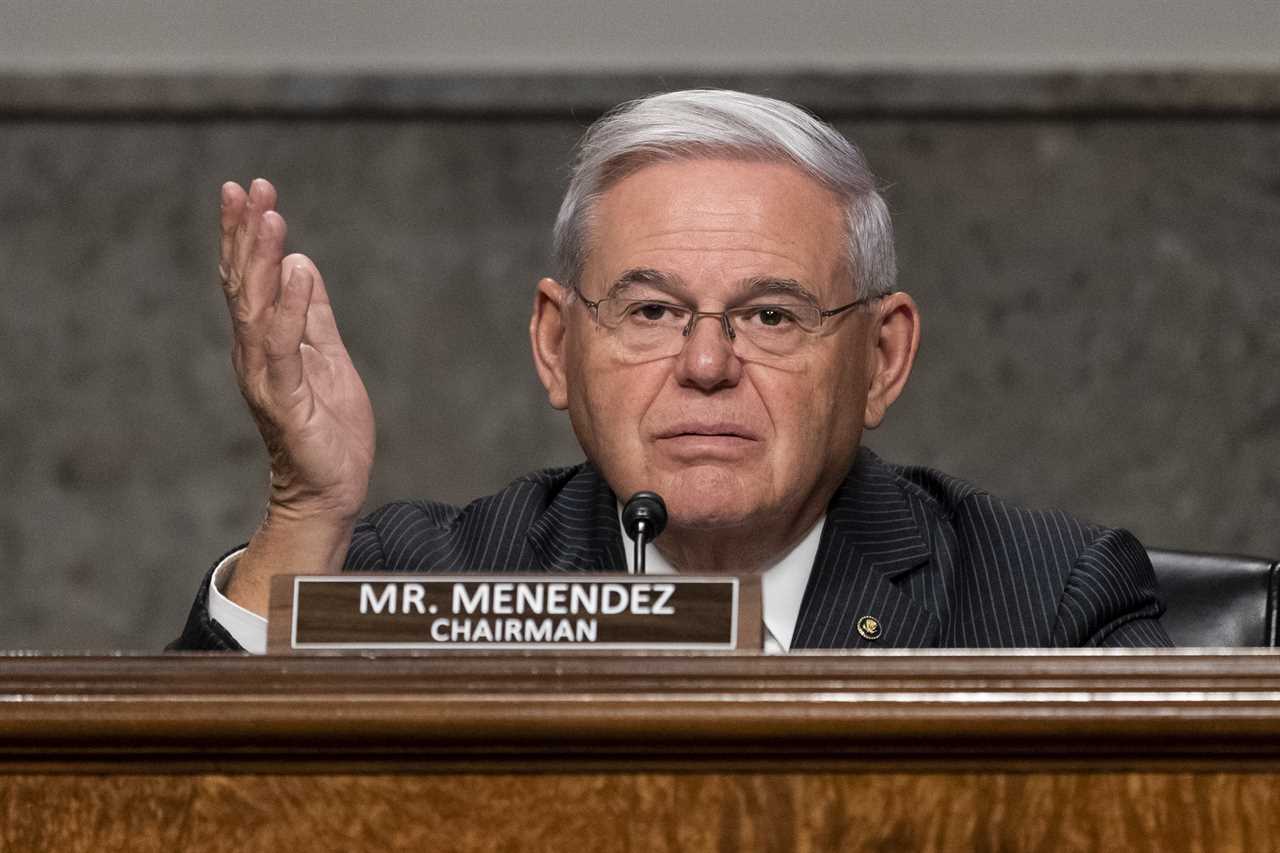
Top Biden administration officials warned senators on Wednesday that Iran could produce enough material for a nuclear bomb in as little as two months, bolstering lawmakers' concerns that the window for a diplomatic solution is rapidly closing.
The assessment, delivered in a classified briefing and described by one senator as “sobering and shocking,” comes as President Joe Biden’s diplomats are racing to strike a deal with Tehran that would prevent it from acquiring a nuclear weapon.
But lawmakers disagree over the best way to achieve that goal. Most Democrats urge a swift rebirth of the 2015-era Iran nuclear deal that former President Donald Trump ripped up, arguing it’s the only viable option. Republicans, meanwhile, argue for a return to Trump’s “maximum-pressure” doctrine that included imposing devastating sanctions on Iran for its nuclear program, support for terrorist groups in the region and other malign activities.
In the meantime, some top Democrats are openly questioning the benefit of staying at the negotiating table in Vienna, where the Biden administration has been trying to reach an agreement that mirrors the 2015 Iran deal, known as the Joint Comprehensive Plan of Action.
“I don’t think members know exactly what re-entry [into the deal] means. What is the deal? Is it exactly the way it was? Is it different? If so, how? What are we giving?” Senate Foreign Relations Chair Bob Menendez (D-N.J.) said after the briefing. “They should walk away when they see there’s not a good deal to be had. I don’t know what the timing of that is, but whenever that is, the window is closing fast.”
Menendez, who vigorously opposed the 2015 deal but was hopeful for its resurrection after Trump tore it up, indicated his patience was wearing thin last week when he called on the Biden administration to “rigorously enforce” sanctions on the regime in Tehran, echoing some Republican skepticism of a new agreement.
“I think the only deal that’s possible is a bad one. And that’s what I fear — that the administration wants a deal so badly that they’ll enter into a really dangerous one,” Florida Sen. Marco Rubio, top Republican on the Intelligence Committee, said in a brief interview.
Sen. Ben Cardin (D-Md.), who also opposed the 2015 agreement, said that while Biden was “dealt a very difficult hand” by Trump, “a bad deal is worse than no deal.” He added: “They don’t have good options.”
“Obviously, Iran is very erratic,” Cardin added. “Its decision-making is very tough for us to predict.”
Members of the Senate Foreign Relations Committee on Wednesday heard from Rob Malley, the U.S. special representative for Iran and the architect of the 2015 nuclear deal, and Brett McGurk, the top Middle East official on the National Security Council. They made the case that the Trump-era “maximum pressure” effort — which included crushing sanctions — only emboldened Iran, noting that it only escalated its support for terrorist proxies in the region, including ones that have targeted U.S. troops in Iraq.
Biden’s allies in the effort, like Sen. Chris Murphy (D-Conn.), echoed the administration’s view that the only way to halt Iran’s nuclear program in its tracks is to resurrect the 2015 deal in some form. The deal put limits on Iran’s ability to advance its nuclear activities, though critics had feared the agreement put too much faith in Iran to adhere to those limits.
“The assessment of where Iran’s nuclear program is, right now, is downright scary,” Murphy said. “And I don’t know how anybody could walk away from that briefing thinking to themselves, we’re going to do better by just continuing this escalatory pattern of sanction and sabotage and assassination.”
When asked about the status of the Vienna talks, Murphy said an agreement is “in sight,” but “significant gaps between the two sides" remain.
“We’re not going to sit at the table for another six months,” he added.
Senators offered less-than-rosy assessments after hearing from Malley and McGurk, who have been trying for nearly a year to achieve what Biden has called a “longer and stronger” nuclear deal with Iran after Trump withdrew the U.S. from the initial pact.
“We were promised by the administration — while they were still celebrating with champagne and streamers and confetti — that it was going to be ‘longer and stronger.’ I think probably even they would admit that that proposition is off the table,” Idaho Sen. Jim Risch, the top Republican on the Foreign Relations Committee, told reporters after the briefing.
Senate Republicans, meanwhile, are vowing to block any attempt by the Biden administration to reenter a nuclear agreement with Iran without congressional approval. It’s unclear whether the Iran Nuclear Agreement Review Act — the 2015 law that allowed Congress to have a say in the initial deal — could apply to a new agreement.
----------------------------------------
By: Andrew Desiderio
Title: ‘Sobering and shocking’: Lawmakers pessimistic about new Iran nuke deal
Sourced From: www.politico.com/news/2022/02/09/lawmakers-pessimistic-about-new-iran-nuke-deal-00007384
Published Date: Wed, 09 Feb 2022 15:03:19 EST
Did you miss our previous article...
https://consumernewsnetwork.com/politics-us/-how-the-west-gets-ukraine-wrong-and-helps-putin-as-a-result






